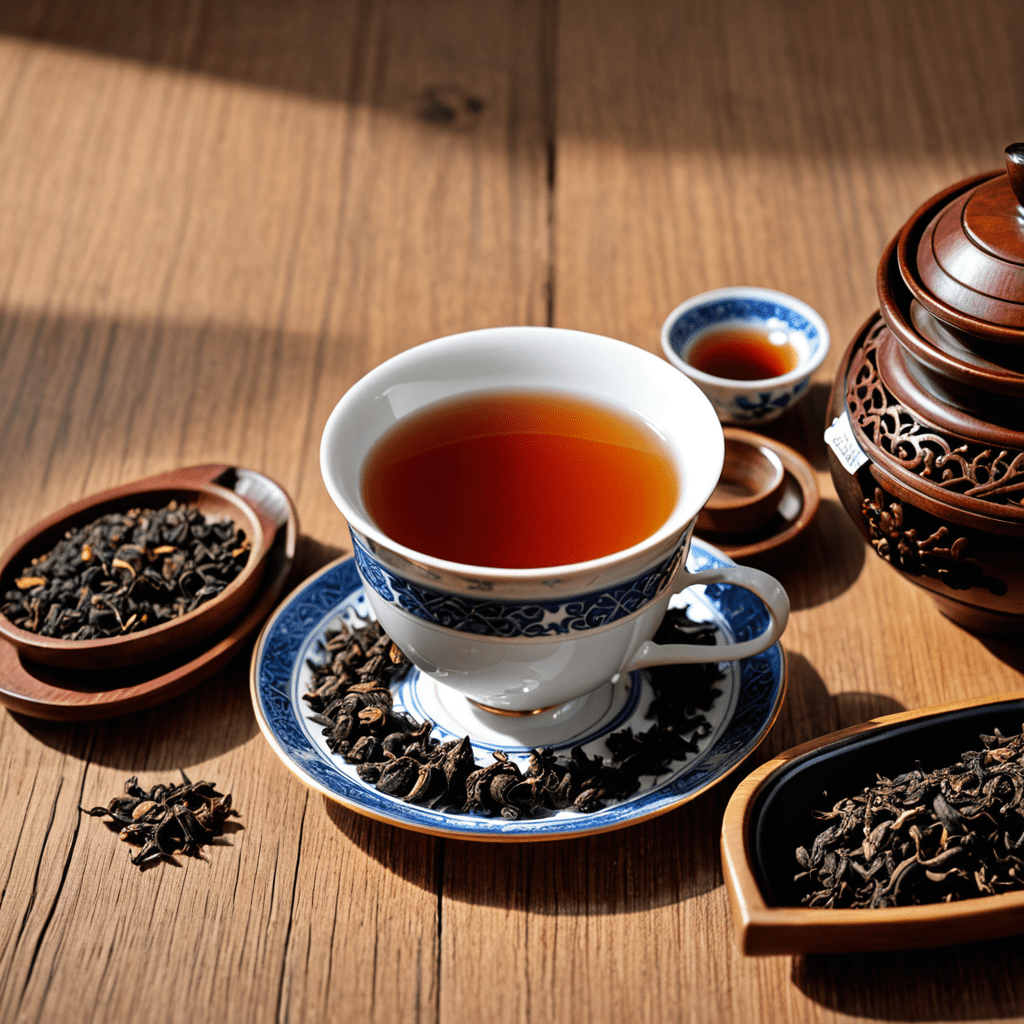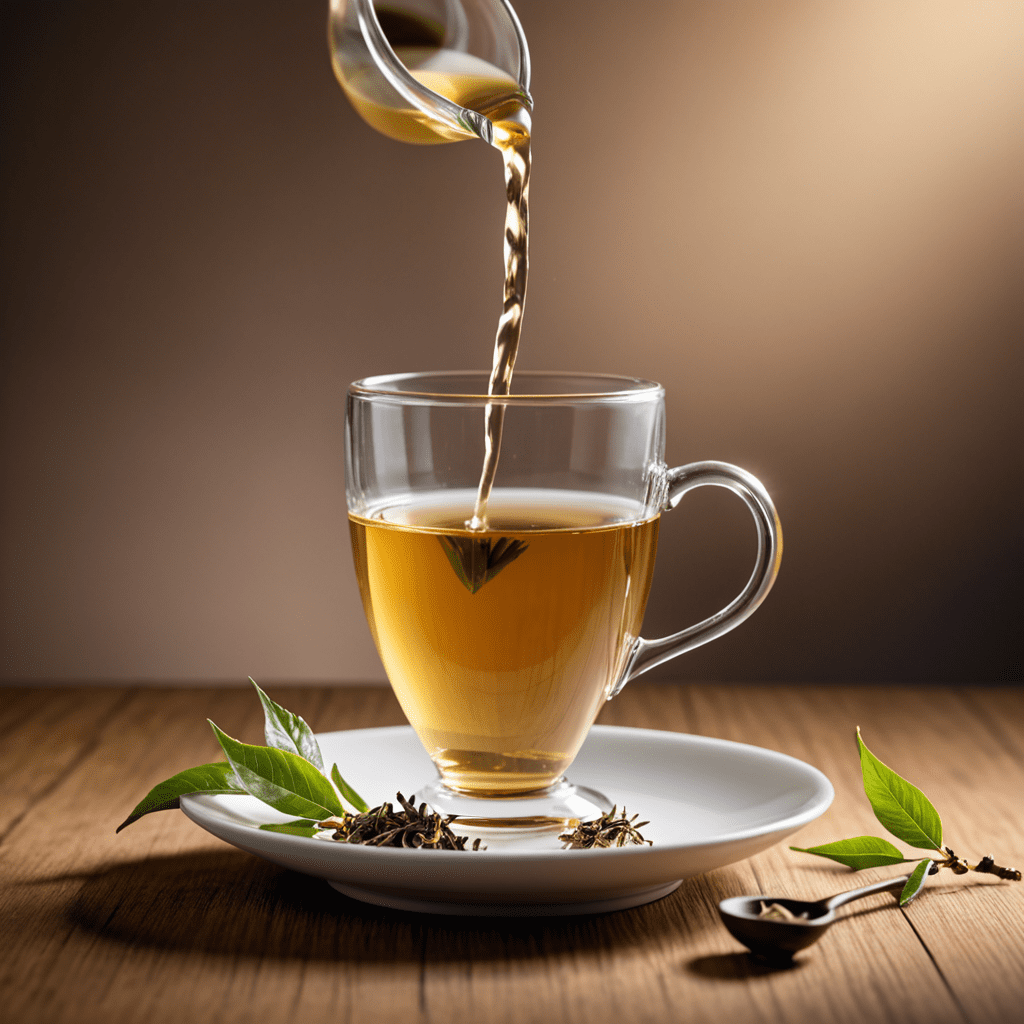The Role of Tea in Indian Philosophical Thought
1. Introduction
Tea, an aromatic beverage with a rich history, holds a significant place in Indian culture and philosophy. Its journey through centuries has intertwined with the spiritual and intellectual landscape of the Indian subcontinent, leaving an indelible mark on its philosophical thought. From its humble origins as a medicinal herb to its revered status as a contemplative aid, tea has played a multifaceted role in shaping the Indian philosophical discourse.
This article delves into the multifaceted connection between tea and Indian philosophical thought, exploring its historical, religious, and cultural significance. We will examine how tea has been used as a sacrament, a tool for mindfulness, a catalyst for contemplation, and a symbol of social harmony. Additionally, we will investigate its association with the five elements and its role in Ayurvedic medicine. By examining these various facets, we aim to provide a comprehensive understanding of the profound impact tea has had on the philosophical landscape of India.
2. Historical Context
The arrival of tea in India can be traced back to the 17th century when it was introduced by the British East India Company. Initially, tea was primarily consumed by the British elite in India. However, its popularity gradually spread among the local population, becoming an integral part of Indian culture.
The cultivation of tea in India began in the mid-19th century, with the establishment of tea plantations in Assam and Darjeeling. This led to a significant increase in tea production and consumption within India, further solidifying its place in Indian society.
3. Tea as a Sacrament
In various Indian traditions, tea holds a sacred and spiritual significance. It is often offered as a prasadam (offering) to deities during religious ceremonies and rituals. In Hinduism, tea is associated with the goddess Lakshmi, who is believed to bring prosperity and good fortune. Similarly, in Buddhism, tea is seen as a symbol of purity and mindfulness.
The act of preparing and serving tea is often viewed as a meditative practice, promoting a sense of inner peace and tranquility. The aroma of tea is believed to have calming and soothing effects, creating an atmosphere conducive to spiritual reflection.
4. Tea and Mindfulness
In Indian philosophy, mindfulness is a central concept that emphasizes present-moment awareness and non-judgmental observation of thoughts and emotions. Tea consumption has been closely linked to mindfulness practices, particularly within Buddhist traditions.
The act of brewing and drinking tea involves a series of mindful steps, from measuring the tea leaves to observing the water as it boils. Each step encourages one to be fully present in the moment, cultivating a sense of calm and focus. The subtle flavors and aromas of tea further enhance this mindful experience, promoting a deeper connection with oneself and the surrounding environment.
5. Tea as a Catalyst for Contemplation
Tea has long been recognized as an aid to deep reflection and philosophical inquiry. The act of brewing and drinking tea creates a space for contemplation, allowing individuals to delve into their inner thoughts and ponder complex questions. The subtle flavors and aromas of tea can stimulate the mind, while the warmth of the beverage creates a sense of comfort and relaxation. This combination of mental stimulation and physical relaxation makes tea an ideal catalyst for philosophical contemplation.
Throughout history, countless philosophers and thinkers have found inspiration in tea. The Zen Buddhist tradition, for example, emphasizes the importance of mindfulness and present-moment awareness. Tea ceremonies play a central role in Zen practice, providing a structured setting for quiet contemplation and self-reflection. Similarly, in Hinduism, tea is often used as a tool for meditation, helping individuals to focus their minds and achieve a state of inner peace.
6. Tea and the Five Elements
In Indian cosmology, the five elements (Panchabhutas) – earth, water, fire, air, and space – are believed to be the fundamental building blocks of the universe. Tea is seen as an embodiment of these five elements, each contributing to its unique properties and effects.
- Earth: The solid tea leaves represent the earth element, providing a grounding and stabilizing influence.
- Water: The water used to brew tea symbolizes the water element, representing fluidity and adaptability.
- Fire: The heat used to boil the water represents the fire element, bringing energy and transformation.
- Air: The aroma of tea represents the air element, promoting clarity and mental alertness.
- Space: The empty space within the teacup represents the space element, signifying openness and potential.
The harmonious balance of these five elements within tea is believed to contribute to its overall health benefits and its ability to promote mental well-being.
7. Tea and Ayurvedic Medicine
Ayurvedic medicine, an ancient Indian system of holistic healing, recognizes the therapeutic benefits of tea. Tea is believed to balance the three doshas (vata, pitta, and kapha) – the vital energies that govern physical and mental health.
- Vata: Tea with warming spices like ginger and cinnamon is believed to balance vata, reducing anxiety and promoting grounding.
- Pitta: Cooling teas such as peppermint and chamomile are thought to pacify pitta, reducing inflammation and promoting emotional balance.
- Kapha: Astringent teas like green tea and black tea are believed to stimulate kapha, boosting energy levels and reducing sluggishness.
Ayurvedic practitioners often recommend specific teas based on an individual's dosha constitution and health concerns.
8. Tea and Social Rituals
Tea plays a significant role in social gatherings and community building in India. The act of sharing a cup of tea with friends and family fosters a sense of connection and belonging. Tea stalls and cafes are often bustling hubs of social interaction, providing a space for people to come together and share stories, laughter, and companionship.
In many Indian cultures, offering tea to guests is a gesture of hospitality and respect. The ritual of preparing and serving tea becomes a way of expressing care and warmth towards others. Tea also plays a role in various cultural ceremonies and festivals, symbolizing unity and shared tradition.
9. Tea in Contemporary Indian Philosophy
In contemporary Indian philosophy, tea continues to be a source of inspiration and reflection. Modern thinkers draw upon the rich symbolism and tradition associated with tea to explore themes of mindfulness, self-awareness, and the interconnectedness of all things.
The growing popularity of tea ceremonies and mindfulness practices in India reflects the enduring relevance of tea in philosophical discourse. As individuals seek ways to navigate the complexities of modern life, tea offers a grounding and contemplative practice that promotes inner peace and well-being.
10. Conclusion
Tea has played a multifaceted role in shaping the philosophical landscape of India. From its historical origins as a medicinal herb to its contemporary relevance as a contemplative aid, tea has left an indelible mark on Indian thought. Its association with mindfulness, contemplation, and social harmony highlights its profound impact on the Indian psyche. As India continues to evolve as a nation, tea is likely to remain an integral part of its cultural and philosophical identity.
FAQs
What are the different types of tea popular in India?
India produces a wide variety of teas, including black tea, green tea, white tea, oolong tea, and herbal infusions. Some of the most popular types of tea in India include Assam tea, Darjeeling tea, Nilgiri tea, and Masala chai.
What are the health benefits of tea?
Tea consumption has been linked to various health benefits, including reducing the risk of heart disease, stroke, and cancer. Tea is also rich in antioxidants, which protect cells from damage.
How is tea typically prepared in India?
Tea is typically prepared in India by boiling water and then steeping tea leaves in the hot water. Milk, sugar, and spices such as ginger and cardamom are often added to taste.
What is the significance of tea ceremonies in India?
Tea ceremonies in India are a way of expressing hospitality, respect, and connection. They are also a form of mindfulness practice, promoting present-moment awareness and inner peace.
What is the future of tea in India?
The future of tea in India looks bright. The tea industry is growing rapidly, and there is a growing demand for high-quality Indian teas both domestically and internationally. As India continues to develop as a nation, tea is likely to play an increasingly important role in its economy and culture.


